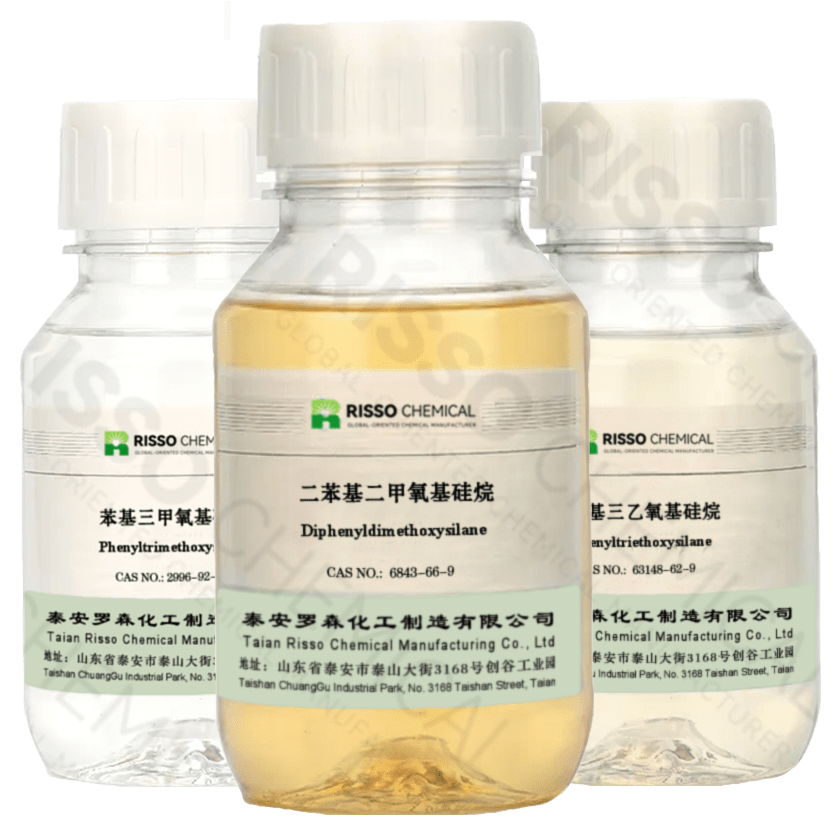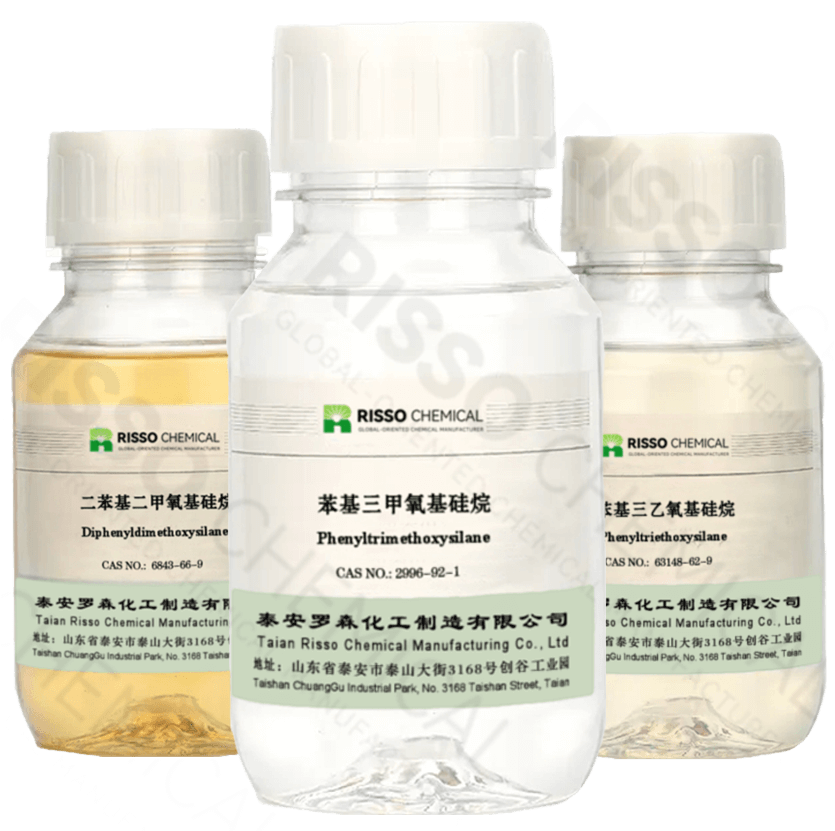Understanding the Types of Silicone Resins and Their Applications
- Blog
- August 1, 2015
- 11:21 am
【Description】
Silicone resins have become crucial across various industries due to their unique properties, including high-temperature resistance, water repellency, chemical stability, and superior durability. These polymeric compounds are primarily derived from silicon and oxygen and form a stable, high-performance structure that suits applications in construction, automotive, electronics, and industrial manufacturing. Each type of silicone resin has specific characteristics and advantages, making it essential to understand the various types and applications in order to select the most suitable resin for each unique industrial need.
Silicone resins are versatile materials widely used across industries for their durability, heat resistance, and insulating properties. These resins are polymers made from silicon-oxygen bonds, which provide excellent stability and flexibility. They’re especially popular in coatings, adhesives, and electronic applications, making them an essential component in manufacturing, construction, automotive, and more. In this blog, we’ll explore the primary types of Silicone resins, their properties, and their most common uses.
Table of Contents
Types of Silicone Resins
- Methyl Silicone Resins
- Properties: Methyl silicone resins are some of the most heat-resistant resins, providing thermal stability in temperatures often exceeding 300°C. Their resistance to environmental factors such as UV light, oxidation, and moisture also makes them exceptionally durable. They’re valued for their low surface tension, which offers superior water repellency and makes them ideal for harsh, high-humidity environments.
- Applications: Methyl silicone resins are widely used in high-temperature coatings and protective barriers for metal surfaces and industrial equipment. Given their thermal stability, they are also popular in manufacturing heat-resistant paints, varnishes, and insulative coatings. Their water-resistant properties make them suitable for outdoor equipment and structural coatings that face prolonged exposure to environmental conditions.
- Phenyl Silicone Resins
- Properties: Phenyl silicone resins are distinguished by their outstanding oxidative and thermal stability. They contain phenyl groups, which enhance their UV resistance and make them less prone to yellowing or discoloration, even after prolonged exposure to sunlight. Phenyl silicone resins also exhibit improved electrical insulation properties.
- Applications: Thanks to their resistance to yellowing, phenyl silicone resins are often used in electronics, lighting systems, and exterior coatings. Their stability makes them ideal for use in coatings exposed to varying temperatures, outdoor elements, and UV radiation. They are frequently used to insulate electronic devices, safeguard lighting systems, and protect optical devices that require high clarity and consistent performance.
- Epoxy-Modified Silicone Resins
- Properties: Epoxy-modified silicone resins combine the durability and strength of epoxy with the thermal and chemical stability of silicone. This hybrid resin offers excellent adhesion, abrasion resistance, and chemical resilience, making it ideal for applications requiring a strong bond and resistance to environmental stressors. Epoxy-silicone hybrids are also known for their tolerance to both low and high temperatures, contributing to their flexibility in challenging settings.
- Applications: These resins are commonly used in automotive, marine, and industrial coatings, where surfaces are exposed to chemicals, varying temperatures, and harsh environments. Epoxy-modified silicone resins are also suitable for protective and anti-corrosion coatings on machinery and equipment. They provide long-lasting resistance to solvents and chemicals, making them an ideal solution for equipment that must endure rigorous, high-stress environments.
- Amino-Modified Silicone Resins
- Properties: Amino-modified silicone resins incorporate amino groups that improve adhesion to a variety of substrates, including metals, plastics, and rubber. They provide exceptional bonding strength, making them highly effective as primers and binding agents in paints and coatings. The enhanced adhesion properties contribute to improved longevity and resilience in products exposed to demanding conditions.
- Applications: These resins are widely used in primers, specialty coatings, and industrial paints that require a strong, durable bond on difficult-to-adhere surfaces. In automotive applications, amino-modified silicone resins are used in coating systems where increased adhesion is required. They are also popular in construction materials, where they enhance the durability of coatings applied to surfaces exposed to high wear or extreme environmental factors.
- Alkyl Silicone Resins
- Properties: Featuring alkyl groups, these resins offer exceptional moisture and water resistance. They remain flexible even at lower temperatures, making them suitable for applications in cold or humid environments. Their chemical structure provides enhanced stability, which helps them retain their properties over extended periods of exposure to moisture and extreme weather.
- Applications: Alkyl silicone resins are used in waterproof coatings, building protection, and outdoor paints. In construction, they help prevent water damage on exposed surfaces, such as concrete, metal, or wood, enhancing the longevity of structures. They’re ideal for marine coatings, where moisture and saltwater exposure are continuous, and for coatings on structures subject to wide temperature fluctuations.
- Silicone Polyether Resins
- Properties: Silicone polyether resins combine silicone and polyether elements to create a water-soluble, flexible resin. They are compatible with water-based systems, making them versatile for both industrial and personal care applications. These resins provide a soft, smooth finish, excellent hydrophilicity, and flexibility, making them a popular choice for products that need a soft-touch or water-resistant quality.
- Applications: Silicone polyether resins are commonly used in personal care products and cosmetics, providing a silky texture and long-lasting hydration. They’re also used in soft-touch coatings for consumer goods, as well as in formulations for flexible, waterproof coatings in the textile industry and automotive interiors.
Key Properties of Silicone Resins
Each type of silicone resin is known for specific properties that make it valuable across various industrial applications. Here are some key characteristics that contribute to their versatility:
- High Heat Resistance: Many silicone resins can withstand temperatures of 300°C (572°F) or higher without significant degradation, making them ideal for high-temperature applications.
- Moisture Resistance: Certain silicone resins, such as methyl and alkyl types, repel water and prevent moisture damage, ensuring durability in humid environments.
- Chemical Stability: Silicone resins are highly resistant to chemical attack from solvents, acids, and alkalis, making them suitable for applications exposed to corrosive materials.
- UV and Oxidation Resistance: Phenyl silicone resins, in particular, resist UV-induced degradation, maintaining stability and color over time in sunlight-exposed applications.
- Electrical Insulation: Many silicone resins offer excellent dielectric properties, protecting electronic components from electrical surges and external environmental exposure.
Choosing the Right Silicone Resin
Choosing the right silicone resin involves matching the resin’s properties to the specific needs of the application:
- For High-Temperature Environments: Methyl and phenyl silicone resins are ideal for heat-resistant coatings and insulative materials.
- In UV-Exposed Applications: Phenyl silicone resins are especially suited for outdoor applications and products exposed to continuous UV light.
- In Chemically Harsh Environments: Epoxy-modified silicone resins offer robust protection against solvents and chemicals.
- For Enhanced Adhesion: Amino-modified silicone resins provide strong bonding on challenging substrates.
- In Moisture-Rich or Humid Conditions: Alkyl silicone resins offer excellent water resistance and are suited for marine and outdoor applications.
Industry Applications of Silicone Resins
Silicone resins are essential in numerous sectors, including:
- Construction: Used in durable, water-repellent coatings, structural adhesives, and weather-resistant paints that protect surfaces from harsh environmental factors.
- Automotive: For high-temperature coatings on engines and exhaust systems, as well as in durable adhesives for exterior parts.
- Electronics: Phenyl silicone resins are used to protect sensitive electronic components from UV exposure, moisture, and temperature fluctuations.
- Personal Care and Cosmetics: Silicone polyether resins provide smooth textures in personal care formulations and hydrophobic properties in skin-care products.
- Industrial Equipment: Epoxy-modified silicone resins are ideal for protective coatings on machinery and equipment exposed to chemical and thermal stress.
Final Thoughts
Silicone resins offer a wide range of propertie, With types designed to resist heat, water, UV radiation, and chemicals, silicone resins have become a core material for high-performance coatings, adhesives, and insulation products.
RissoChem can meet the needs of different industries for customized Silicone resins. Whether in construction, automotive, electronics, or personal care, selecting the appropriate silicone resin enhances durability, performance, and resilience in demanding applications. With their versatile properties, silicone resins continue to be a vital material across multiple industries, driving innovation and durability in modern products.
Popular Recommendations
- Most popular products
TRENDING
- Address: Daiyue Industrial Park, Taian, Shandong, China



